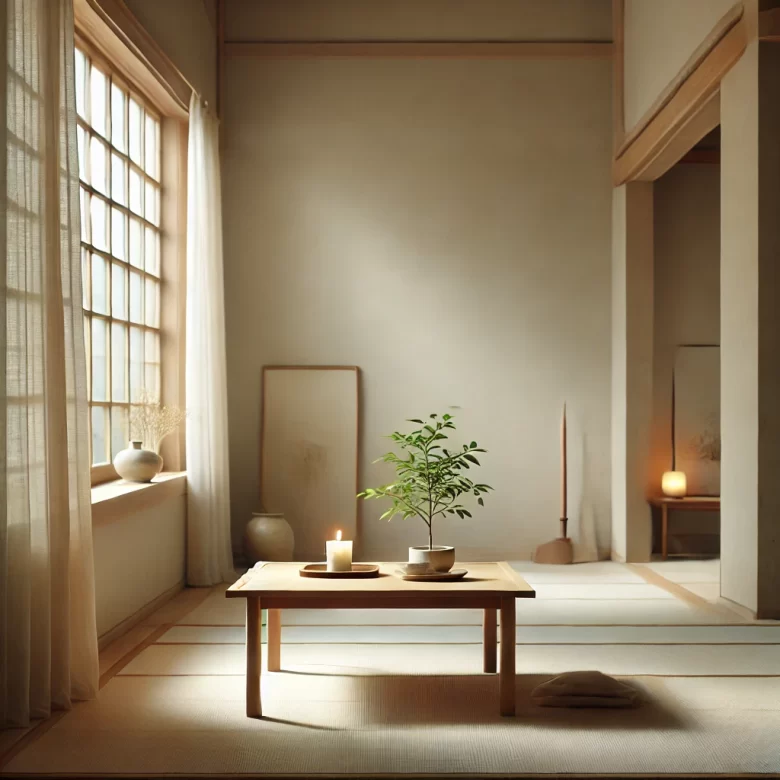In today’s fast-paced, consumer-driven world, it’s easy to accumulate things, ideas, and habits that, while seemingly helpful, often cloud our clarity and overwhelm our senses. From the clutter in our homes to the overabundance of distractions in our daily lives, finding peace and purpose can seem like an uphill battle. However, by consciously eliminating the unnecessary and embracing time-tested traditions, we can achieve a life marked by simplicity, clarity, and profound fulfillment.
This article explores how you can create space for clarity in your life by reducing excess, making room for meaningful traditions, and fostering a more intentional way of living.
The Power of Clarity in Modern Life
In the modern age, clarity can feel like a luxury. With constant notifications, social media updates, and the pressure to perform at work or in personal relationships, our mental bandwidth is often stretched thin. Clarity allows us to focus on what truly matters, helping us make better decisions, prioritize our well-being, and cultivate peace in our environment.
Why is Clarity So Important?
Clarity offers several psychological and emotional benefits, including:
- Improved Focus: When you have fewer distractions, your mind can focus on the most important tasks, whether at work or in your personal life.
- Reduced Stress: Excess clutter—both physical and mental—can lead to anxiety. Clarity helps you shed unnecessary burdens, easing stress.
- Better Decision Making: With a clear mind and environment, decision-making becomes more intuitive and grounded in your core values.
- Increased Productivity: By eliminating unnecessary tasks and distractions, you free up time for what matters most.
Understanding the Unnecessary in Your Life
To make room for what truly matters, the first step is to identify what is unnecessary. This often requires honest reflection, as we tend to hold onto things, habits, and even relationships out of habit or societal expectation rather than true necessity.
The Clutter in Your Physical Space
One of the first areas to address is the physical clutter that accumulates over time. Whether it’s old clothes, outdated electronics, or items you no longer use, these things can weigh heavily on your mind.
- How to Identify Physical Clutter:
- Assess frequently used spaces: Look at areas where clutter accumulates most, such as your desk, bedroom, or kitchen.
- Set aside time for purging: Commit to a decluttering session, focusing on eliminating items you don’t need, use, or cherish.
- Adopt a minimalist mindset: Embrace the idea that less is more. Keep only those items that bring value or joy into your life.
Mental Clutter: Limiting Overwhelm
Just as our homes can become cluttered, so can our minds. Mental clutter can stem from overcommitment, negative thinking, or the constant bombardment of information.
How to Identify Mental Clutter:
- Track your thoughts: Reflect on your daily thought patterns. Are you overthinking or obsessing about trivial matters?
- Observe emotional overload: Feelings of stress or anxiety often signal that your mental space is cluttered.
- Take breaks: A clear mind requires regular moments of rest. Consider taking a digital detox or spending time in nature to reset your mental state.
The Importance of Decluttering Your Routine
Many people don’t realize how a cluttered daily routine can negatively affect clarity. Our routines can become repetitive and stagnant, with little room for change or personal growth. By simplifying your daily activities, you can make more room for tradition and meaningful pursuits.
Streamline Your Daily Activities
An over-packed calendar filled with meetings, to-do lists, and commitments can leave little room for relaxation or reflection. By identifying what tasks truly matter and eliminating non-essential ones, you free up space for more important, fulfilling activities.
- Prioritize your goals: What are your key objectives? Whether in your career or personal life, make sure your daily actions align with your long-term vision.
- Limit distractions: Focus on what’s essential. Turn off unnecessary notifications, avoid multitasking, and schedule intentional downtime.
- Establish routines: Create a simple and predictable daily routine that supports your well-being. Morning rituals, exercise, or a few minutes of reflection can improve mental clarity.
Embrace Slow Living
Slow living is about embracing simplicity and mindfulness in everyday activities. Whether it’s cooking a meal, practicing a hobby, or spending time with loved ones, slow living encourages a return to traditions that nourish the body and soul.
- Slow down and savor: Take your time when performing everyday tasks. Enjoy the process rather than rushing to finish.
- Cultivate mindful habits: Mindfulness in simple activities—such as savoring your morning coffee or taking a mindful walk—can lead to deeper clarity and connection to the present moment.
Making Room for Tradition
In a world that constantly pushes for innovation and speed, it’s important not to overlook the value of tradition. Traditions often provide a sense of continuity, grounding, and meaning that modern life can lack.
Why Tradition Matters
- Connection to the past: Traditions link us to our history, culture, and values, providing a sense of belonging and continuity.
- Ritual and structure: Traditions often create structure in our lives, offering a sense of predictability and comfort.
- Meaning and purpose: By engaging in time-honored practices, we often find deeper meaning and purpose in our actions.
How to Make Room for Tradition
Tradition doesn’t have to mean rigid adherence to outdated practices. It’s about finding time-tested habits and values that resonate with your personal beliefs and lifestyle. Here are ways to make room for tradition in a busy modern world:
- Start with small rituals: Simple daily practices like lighting a candle before dinner, journaling, or practicing gratitude can bring meaning and mindfulness to your life.
- Engage in family traditions: Whether it’s cooking a family recipe or celebrating holidays together, family traditions create lasting memories and a sense of shared values.
- Learn from past generations: Take time to learn from your elders or study cultural traditions that resonate with you. This knowledge can offer insights into how to live with greater intentionality.
Embrace Simplicity in All Areas of Life
Living with clarity involves making simplicity a priority, not just in your physical space, but in every area of your life. This includes your relationships, work, and even your personal beliefs.
Simplifying Your Relationships
Relationships, especially in today’s digital age, can become overwhelming. By focusing on deep, meaningful connections and letting go of superficial interactions, you can bring more clarity and joy into your social life.
- Quality over quantity: Nurture relationships that add value to your life and let go of toxic or draining connections.
- Practice active listening: Give your full attention to others and engage in conversations that foster connection and understanding.
- Create boundaries: Set healthy boundaries to ensure that your relationships remain balanced and supportive.
Simplifying Your Work and Career
Work can often feel like a never-ending cycle of deadlines and responsibilities. By simplifying your approach to work, you can find greater satisfaction and clarity in your professional life.
- Focus on your strengths: Identify your core strengths and align your work activities around them.
- Minimize distractions: Turn off notifications, limit multitasking, and create a dedicated workspace to improve your focus.
- Delegate and say no: Don’t hesitate to delegate tasks or turn down commitments that don’t align with your goals.
Simplifying Your Finances
Financial stress can be a significant source of mental clutter. By simplifying your approach to money, you can free up mental space and focus on what truly matters.
- Create a budget: Track your income and expenses to identify areas where you can cut back or save more.
- Prioritize savings: Set aside a portion of your income for savings and investments to reduce financial anxiety.
- Minimize debt: Work on paying off high-interest debts and avoid accumulating unnecessary debt.
Simplifying Your Digital Life
In today’s world, digital distractions are everywhere. The constant influx of emails, social media notifications, and apps can contribute to mental clutter. By simplifying your digital life, you can gain more clarity.
- Declutter your devices: Organize your files, delete unnecessary apps, and unsubscribe from emails you no longer need.
- Limit screen time: Set boundaries on how much time you spend on devices each day, particularly on social media.
- Practice digital detoxes: Set aside specific times during the day or week to completely disconnect from screens.
Cultivating Mindfulness and Gratitude
Mindfulness and gratitude are powerful tools for fostering clarity and emotional balance. These practices allow you to focus on the present moment, reducing mental clutter and promoting a more intentional way of living.
Practicing Mindfulness
Mindfulness involves being present in the moment without judgment. By practicing mindfulness regularly, you can reduce stress, enhance clarity, and increase your overall well-being.
- Meditate: Set aside time each day for meditation to clear your mind and focus on your breath.
- Be present: Engage fully in whatever task or conversation you’re involved in, without distractions.
- Observe your thoughts: Practice observing your thoughts without reacting to them, allowing you to gain greater control over your mind.
Practicing Gratitude
Gratitude shifts your focus from what you lack to what you already have. By cultivating a gratitude practice, you can enhance your clarity and appreciation for life.
- Start a gratitude journal: Each day, write down three things you’re grateful for to reinforce positive thinking.
- Express appreciation: Take time to thank others for their kindness or support, fostering deeper connections and gratitude.
Living with more clarity doesn’t require drastic changes or extreme minimalism. It’s about making intentional choices, shedding what no longer serves you, and creating space for what truly matters. By eliminating the unnecessary—whether in your physical environment, mental clutter, or daily routine—and embracing meaningful traditions, you can cultivate a life of purpose, balance, and peace.
Start today by identifying one area of your life that feels cluttered, and take the first step toward simplifying it. You might be surprised by how much clearer, calmer, and more fulfilling your life becomes once you make room for the things that truly matter.




